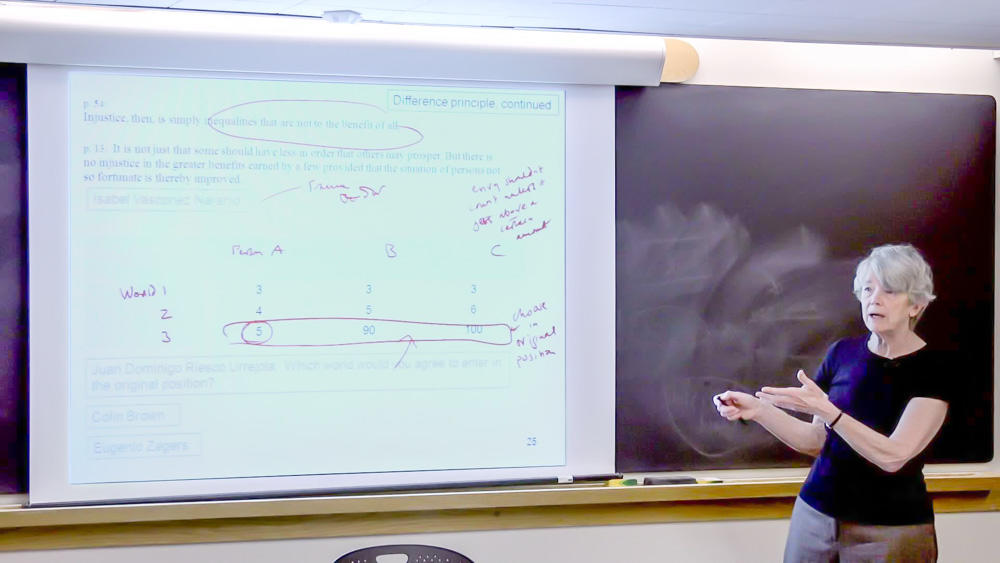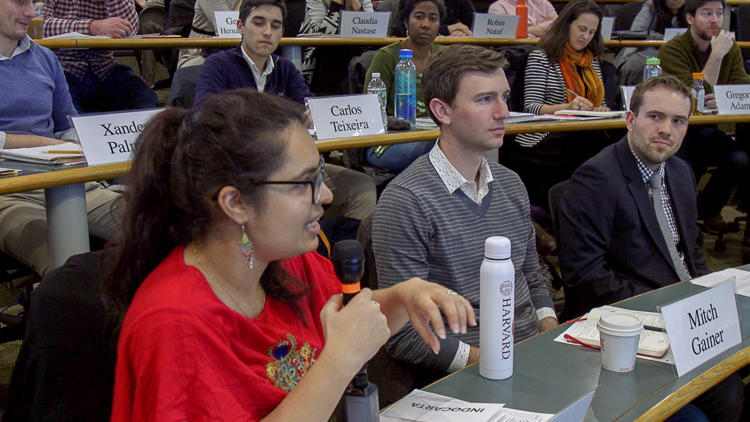Just like assertions made in essays, comments made during class should be rooted in evidence, not instinct. To support the development of this critical skill, Brett Flehinger requires students to “secure with evidence” any statements they make. By explicitly setting and enforcing the expectation that in-class comments must be grounded in course readings, Flehinger ensures that all students practice evidence-based reasoning.
Requiring evidence-based comments in class
Instructor
Brett Flehinger, Lecturer on History
Student Group
Undergraduate
School
Harvard College
Course
American Populisms: From Thomas Jefferson to the Tea Party + Trump
Group Size
38 students
- Ask students for textual evidence when they make unsubstantiated assertions in class. This sets the tone that comments should be fact-based and that deep engagement with course readings is nonnegotiable.
- Align reading selections with lecture topics. Lectures should draw upon and extend knowledge developed in readings.
- Model meaningful engagement with texts. During lectures, demonstrate how you, an expert, pull valuable insights from them.
- Research comparing expert and novice performance reveals that the ability to develop cogent arguments and explanations is closely linked to factual knowledge (Bransford et al., 2000)
- The Craft of Research is an easy-to-read book that walks students through the process of developing cogent arguments. Though primarily focused on writing, its central tenants can be also used to support evidence-based discussions.
- In another Instructional Moves video, Flehinger describes how he publicly names when students do something well. At the beginning of the semester, using this move to name when students make evidence-based comments in class will further clarify and reinforce this expectation.




